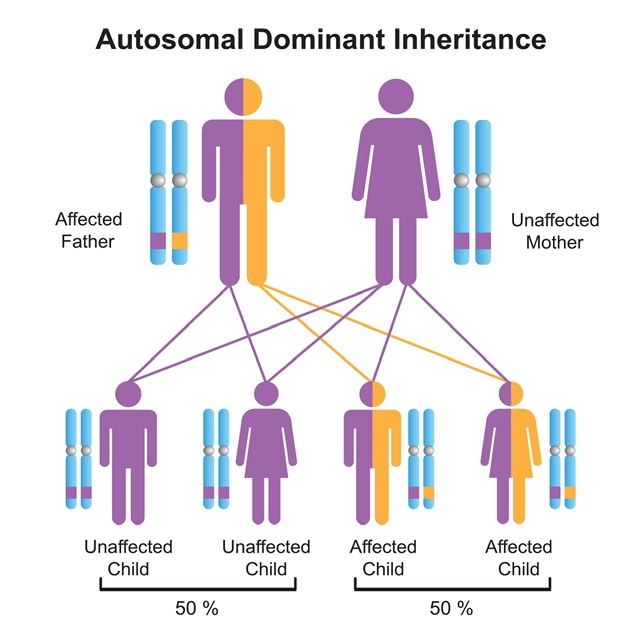We'll be back in a bit !
The system is currently undergoing a routine upgrade to ensure you get the best learning experience. The maintenance is expected to continue till 8:00 pm. Please check back later.
Thank you for your understanding!

Mendelian disorders are genetic conditions caused by mutations in a single gene. These mutations can be inherited from one or both parents, and they can cause a wide range of health problems. While there are over 6,000 known Mendelian disorders, they all fall into three broad categories: autosomal dominant, autosomal recessive, and X-linked. Understanding the causes and types of Mendelian disorders is crucial for people who may be at risk of developing these conditions or who have loved ones who are affected by them.
Mendelian disorders are caused by mutations in a single gene, which can occur spontaneously or be inherited from one or both parents. In some cases, the mutations can be passed down through several generations. The causes of Mendelian disorders can be broken down into the following categories:
Spontaneous mutations: These mutations can occur randomly during DNA replication and cell division. They are not inherited from either parent.
Inherited mutations: These mutations can be passed down from one or both parents. They can be dominant or recessive, depending on the type of gene that is affected.
De novo mutations: These mutations occur spontaneously in the egg or sperm cells and are not present in either parent's DNA.
Mendelian disorders can be divided into three main types: autosomal dominant, autosomal recessive, and X-linked. Here is a breakdown of each type:
Autosomal Dominant:
When a person inherits a mutated gene from one parent, they get autosomal dominant diseases. This type of disorder can affect both males and females and if a person inherits the mutated gene, they have a 50% chance of passing it on to their children.
Autosomal dominant disorders are inherited from a single affected parent who carries a dominant gene. This means that if one parent has the disorder, each child has a 50% chance of inheriting the abnormal gene and developing the disorder.
Here are some examples of autosomal dominant Mendelian disorders:
Huntington's disease: This disorder is a progressive brain disorder that affects muscle coordination and cognitive function. It usually develops in mid-life, and symptoms include involuntary movements, difficulty with speech and swallowing, and cognitive decline.
Marfan syndrome: This condition affects the connective tissue in the body, which provides support and structure to organs and tissues. Individuals with Marfan syndrome may have a tall height, long limbs, and joint flexibility. They may also develop aortic aneurysms, which are potentially fatal.
Neurofibromatosis type 1: This disorder causes tumors to grow on nerves throughout the body. Symptoms may include skin changes, bone abnormalities, and vision problems.
Autosomal dominant disorders
When a person receives two copies of a defective gene, one from each parent, an autosomal recessive condition develops. This means that both parents must carry the abnormal gene, but they may not have the disorder themselves.
Here are some examples of autosomal recessive Mendelian disorders:
Cystic fibrosis: This is a disorder that affects the lungs, pancreas, and other organs. It causes thick, sticky mucus to build up in the lungs, leading to frequent infections and difficulty breathing. It can also cause digestive problems and infertility.
Sickle cell anemia: This is a blood condition that causes red blood cells to change form. The cells swell and can become caught in small blood veins, causing discomfort, organ damage, and an increased risk of infection.
Tay-Sachs disease: This is a disease of the neural system. It results in a gradual decline of mental and physical capacities and, in most cases, death by the age of four.
Phenylketonuria (PKU): This is a condition that affects how the body processes the protein phenylalanine. Without proper treatment, it can cause intellectual disability, seizures, and other neurological problems.
Autosomal recessive disorders
When a defective gene is found on the X chromosome, one of the two sex chromosomes, X-linked diseases result. Males are more likely to be affected by X-linked illnesses than females since females have two X chromosomes and men have one X and one Y chromosome. Some examples of X-linked disorders include:
Hemophilia is an X-linked Mendelian disorder that affects blood clotting. Mutations in the genes that code for blood coagulation factors VIII and IX cause these diseases. Because the genes for these clotting factors are located on the X chromosome, these disorders primarily affect males, although females can also be affected if they inherit the mutated gene from both parents.
X-linked recessive disorder
X-linked agammaglobulinemia is also an X-linked Mendelian disorder. This condition impairs the immune system's capacity to create antibodies, which are required to combat infections. Mutations in the gene that codes for Bruton's tyrosine kinase cause the illness (BTK), which is important for the development and function of immune cells called B cells. X-linked agammaglobulinemia primarily affects males, although females can also be affected if they inherit the mutated gene from both parents.
X-linked dominant disorder
Mendelian disorders are genetic conditions caused by mutations in single genes. These illnesses can affect any portion of the body and result in a variety of symptoms. Understanding the causes and types of Mendelian disorders is important for identifying carriers of the disorder and providing appropriate treatment and support for those affected. Advances in genetic testing and therapies offer hope for improved management and treatment of these disorders in the future.
Currently, there is no cure for Mendelian disorders. Treatment is focused on managing symptoms and improving quality of life.
Mendelian disorders are caused by mutations in single genes.
Individuals and families can benefit from genetic counseling and testing to better understand their risk of having these illnesses and make more educated decisions regarding family planning.
